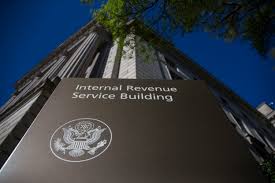
Breaking News
 Inside Archer's bold plans for air taxi rides across NYC, SF, and LA
Inside Archer's bold plans for air taxi rides across NYC, SF, and LA
 The Best Argument Against Veganism | Joel Salatin | EP 539
The Best Argument Against Veganism | Joel Salatin | EP 539
 NY Times Bombshell: 'Trump Called Off Planned Iran Strike.'
NY Times Bombshell: 'Trump Called Off Planned Iran Strike.'
 Human Trafficking Too? Biden Admin Flagged Deported El Salvadoran As 'Suspect Alien'
Human Trafficking Too? Biden Admin Flagged Deported El Salvadoran As 'Suspect Alien'
Top Tech News
 Scientists reach pivotal breakthrough in quest for limitless energy:
Scientists reach pivotal breakthrough in quest for limitless energy:
 Kawasaki CORLEO Walks Like a Robot, Rides Like a Bike!
Kawasaki CORLEO Walks Like a Robot, Rides Like a Bike!
 World's Smallest Pacemaker is Made for Newborns, Activated by Light, and Requires No Surgery
World's Smallest Pacemaker is Made for Newborns, Activated by Light, and Requires No Surgery
 Barrel-rotor flying car prototype begins flight testing
Barrel-rotor flying car prototype begins flight testing
 Coin-sized nuclear 3V battery with 50-year lifespan enters mass production
Coin-sized nuclear 3V battery with 50-year lifespan enters mass production
 BREAKTHROUGH Testing Soon for Starship's Point-to-Point Flights: The Future of Transportation
BREAKTHROUGH Testing Soon for Starship's Point-to-Point Flights: The Future of Transportation
 Molten salt test loop to advance next-gen nuclear reactors
Molten salt test loop to advance next-gen nuclear reactors
 Quantum Teleportation Achieved Over Internet For The First Time
Quantum Teleportation Achieved Over Internet For The First Time
 Watch the Jetson Personal Air Vehicle take flight, then order your own
Watch the Jetson Personal Air Vehicle take flight, then order your own
 Microneedles extract harmful cells, deliver drugs into chronic wounds
Microneedles extract harmful cells, deliver drugs into chronic wounds
The IRS Isn't Going Away, and This Is How We Know

The Trump team claimed in each case that it could raise enough tax revenue from tariffs to replace tax revenue from income taxes.
By March, however, Trump began backtracking, and his administration announced that the new goal was to eliminate income taxes for people making under $150,000 per year.
That last development on its own tells us that the IRS isn't going away. If people making more than $150,000 are still going to pay income tax, then there will still be an IRS to which we'll need to send tax returns to prove we're not making more than $150,000.
But even if we ignore that problem, there are at least two other reasons why we can be sure the IRS isn't going anywhere. The first way we know this is from the fact that the Trump administration is only talking about "abolishing" the progressive individual income tax. Administration mouthpieces have said nothing at all about getting rid of the income taxes known as "payroll taxes" that every wage earner pays.
The second way we know that the IRS isn't going away is that taxes on imports—i.e., tariffs—simply aren't going to bring in enough revenue to keep funding all the popular spending programs that Trump clearly has no interest in cutting.
Payroll Tax: The Income Taxes All Workers Pay
When politicians talk about "the income tax" they virtually always mean the progressive individual income tax. This tax is paid mostly by the top 50 percent of earners. The bottom fifty percent of earners pay an average income tax rate of 3.3 percent.
But there is another income tax paid by all wage earners, regardless of income level, and that is the payroll tax. There is a reason why politicians never mention this income tax: it is connected to the very popular welfare programs known as Social Security and Medicare. The Social Security tax in 2025 is 12.4 percent. The Medicare tax is an additional 2.9 percent. Half of this is paid by the employee and half is paid by the employer. Of course, the employee really pays for both halves because employers effectively reduce wages to pay the payroll tax.
The money collected from these taxes goes into the general fund, and not into any sort of "trust fund." That means it's simply an income tax that's used to beef up federal revenues. It is true enough, though, that without this tax, it would be much harder for the federal government to collect enough revenue to keep Social Security and Medicare funded at its present levels. The feds need today's workers to keep slaving away and paying the payroll tax so it can be handed over to today's pensioners.



